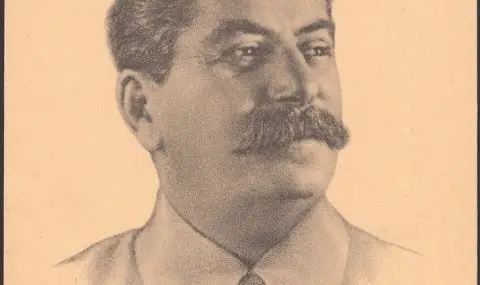Allied bombing in WWII is a well known fact , but few know about the Soviet attacks on the Kingdom of Bulgaria, which rarely find a place in history books.
The first Soviet bombing took place in 1941, although Bulgaria, although a member of the Tripartite Pact, did not declare war on the Soviet Union. On the night of June 22, 1941, a Soviet bomber attacked the city of Dobrich – an event that overshadowed the key day for Moscow when Hitler launched Operation Barbarossa. and the attack on the Soviet Union.
Lyubo Ognyanov talks about these little-known facts in his column “Forbidden History” on NOVA.
On March 1, 1941, Bulgaria officially joined the Tripartite Pact, along with countries such as Hungary, Romania and Slovakia, which were already part of the Axis, allied with Nazi Germany, Italy and Japan. In Yugoslavia, however, a coup d'état changed the country's position, and on April 6, 1941, Yugoslav fighters bombed Sofia. This period of history is the subject of research by a number of scientists, among them Associate Professor Todor Chobanov. We meet him in front of the National Assembly building – one of the targets of the bombing.
One little-known fact is that Bulgaria considered the possibility of buying weapons from the Soviet Union, despite the propaganda of the Bulgarian communists for an alliance with Nazi Germany. Even more interesting is the fact that Joseph Stalin was able to acquire licenses to manufacture German armaments by paradoxically paying Nazi Germany for patents.
On June 22, 1941, the day of Hitler's attack on the USSR, a Soviet bomber attacked Dobrich, even though Bulgaria and the Soviet Union were not at war. This attack occurred only a year after Dobrich was returned to the Kingdom of Bulgaria with the Krai Agreement of September 7, 1940, when Romania ceded Southern Dobrudja. Tsvetan Sashev, chief editor in the “New and Latest History” department. in the regional history museum in Dobrich, tells more about this attack against the background of the military cemetery in the city – a unique place where soldiers from the First World War find their peace – Bulgarians, Russians, Romanians and Serbs.
This is not the only Soviet airstrike on Bulgaria. On the night of September 12-13, 1942, Ruse was the victim of a bombardment in which four aerial bombs were dropped, and over the nearby village of Chervena Voda – nine. Similar attacks are also carried out over Stara Zagora, Gorna Oryahovitsa and Kazanlak, where there are victims and wounded. These strikes lead the Bulgarian authorities to introduce a blackout in October of the same year.
The bloodiest attack from the Soviet side occurred on February 24, 1942, when a Soviet submarine sank the ship "Struma". near Istanbul. On board are hundreds of Jewish refugees fleeing to Palestine. The victims were 406 men, 269 women and 103 children. The Bulgarian crew, led by Captain Grigoriy Gorbatenko, also perished. Ironically, the captain is of Russian origin.
Despite its allied ties with Nazi Germany, Bulgaria did not send troops to the Eastern Front and did not declare war on the Soviet Union. Unlike Bulgaria, Romania actively participated in operations against the Soviet Union. It is included in operation "Barbarossa" and sends troops for the conquest of Odessa. However, Bulgaria declared war on the United States on December 13, 1941, although this war remained symbolic as no direct hostilities took place.
The year 1942, however, brought change. The hostilities of Nazi Germany began to subside, and the United States declared war on Bulgaria on June 5 of that year. Soon after, the Allies began to include our country in their plans for airstrikes.
Among the many Bulgarian heroes who fell victim to the Allied bombings is the pilot Simeon Mihailov, who died during the attack on Sofia on January 10, 1944. His plane fails to stop the bombing of the capital, and after heading for Kyustendil, his machine suddenly crashes. Simeon Mihailov was buried in the military cemetery in Dobrich.
For many years, the Soviet bombing of Bulgaria during the Second World War remained an untold part of our history, silenced during the communist regime.
